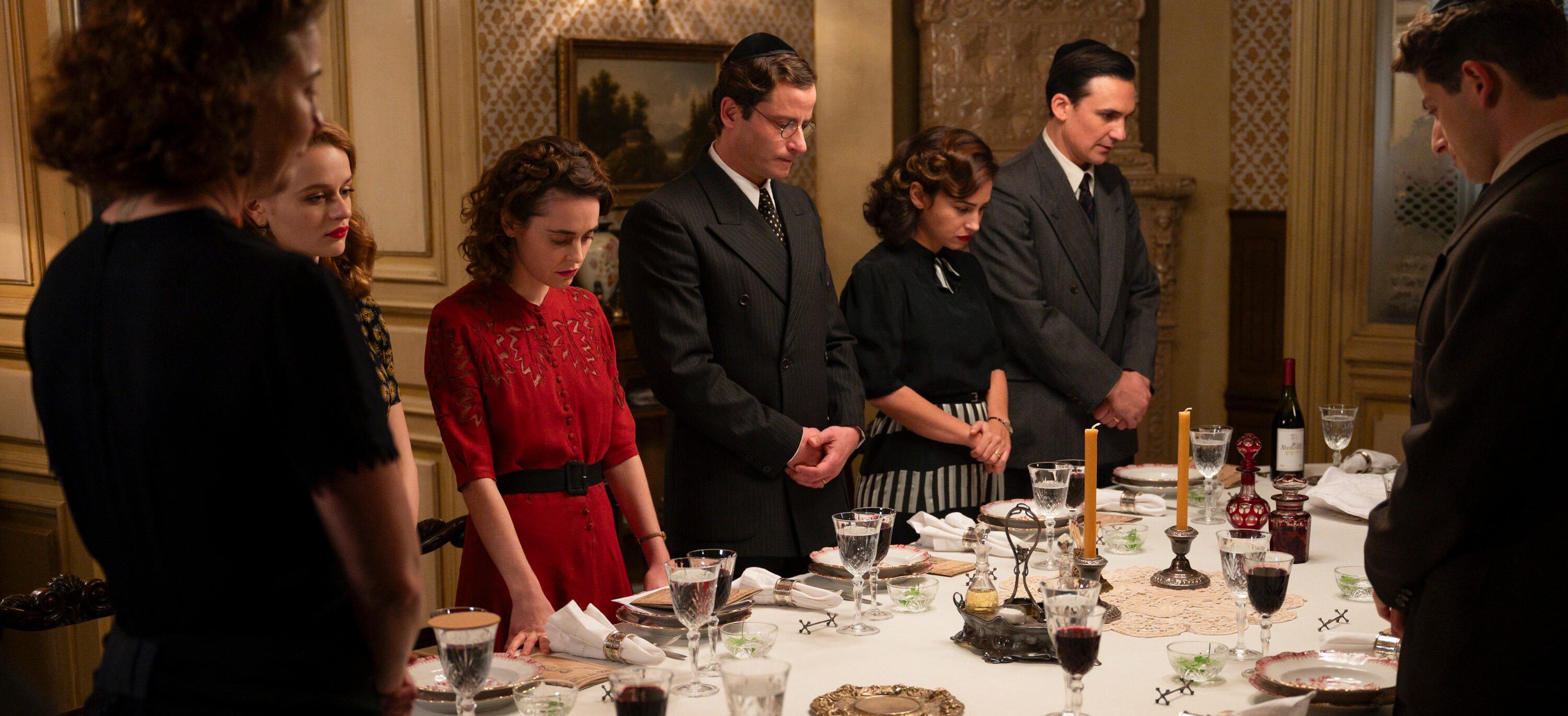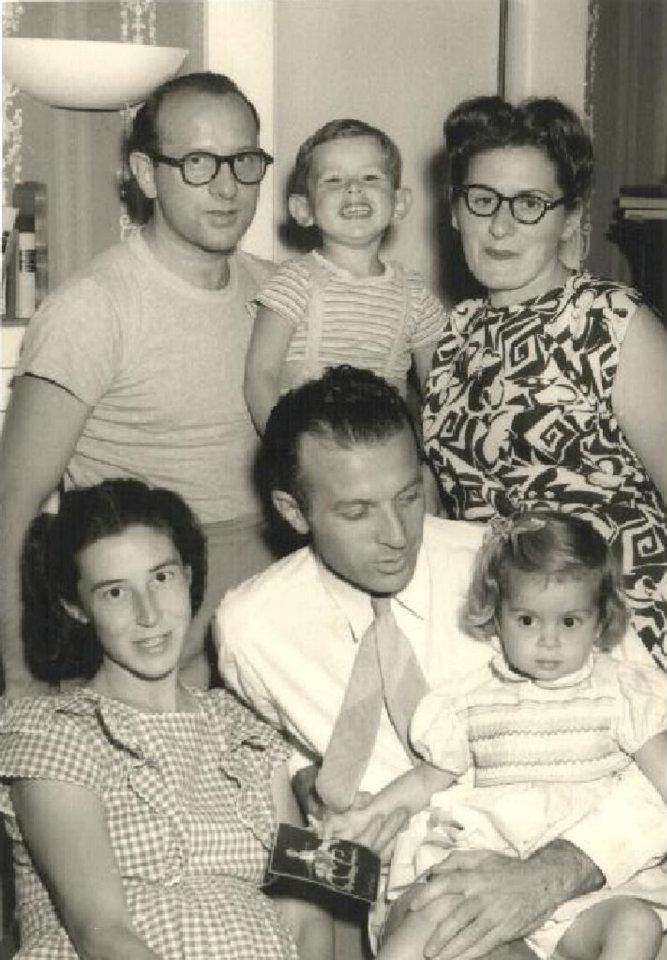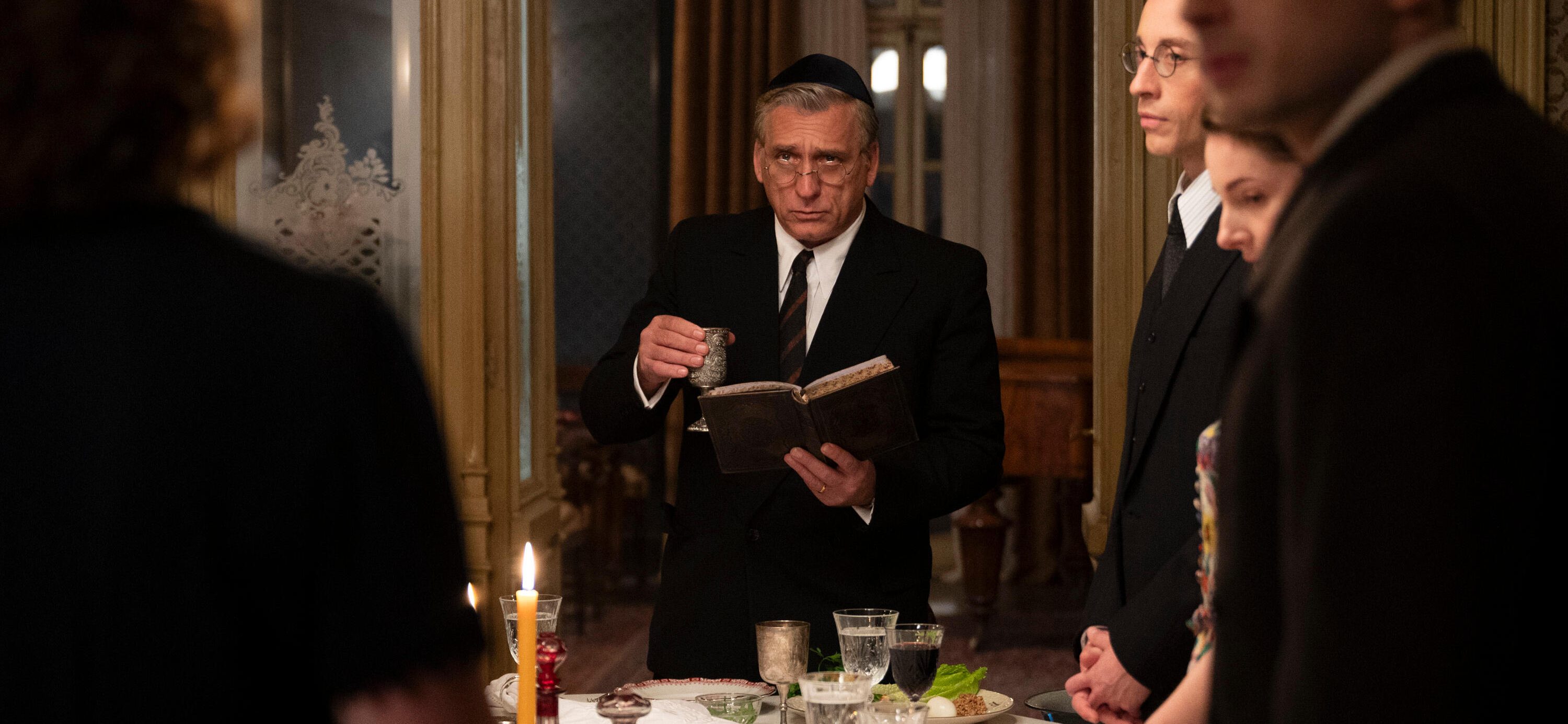In Hulu’s historical drama series ‘We Were the Lucky Ones,’ the Kurcs, a Polish Jew family, get forced to bid adieu to one another when the Germans and the Soviets occupy their country, Poland. Sol and Nechuma Kurc remain with their daughter Mila in their home in Radom. Mila’s younger sister Halina sets out to find their brothers Genek and Jakob, who end up in Soviet-occupied Poland after the fall of the nation. Meanwhile, Addy, who has been living in France as a composer, tries his best to escape the Nazis by leaving for Brazil. Even though the show has several fictional elements present, the Kurcs are based on real Polish Jews, and the hardships they face are based on actual experiences!
The Kurcs During World War II
‘We Were the Lucky Ones’ is based on the novel of the same name by Georgia Hunter, the granddaughter of Addy Kurc. The author wrote the work based on the real experiences of her ancestors, which means that the fates of the Kurcs in the show are more or less authentic in comparison with reality. “The story that unfolds in We Were the Lucky Ones is based on true events. Every significant movement, incarceration, brush with death, and escape described in the book actually happened,” Hunter told Penguin Random House. As the series depicts, the Kurc siblings were separated from one another in the wake of World War II.

Addy was a composer working in France who eventually had to be a part of the Polish column of the French army after World War II broke out. He then tried to escape from Europe and the Germans by boarding a ship named SS Alsina, which was bound for Rio de Janeiro, Brazil. The Czech woman, Eliska in the period drama, he met on the ship eventually became his fiancée. However, they didn’t get married. Genek and his wife Herta’s lives took a turn when they were arrested by Soviet forces and sent to Siberia. As the third episode of the show portrays, Herta did give birth to a boy named Józef while they were Soviet prisoners. She also reportedly used her breast milk to keep her son’s eyes from freezing.
Mila, on the other hand, was working in a factory during World War II. She had to hide her daughter Felicia and eventually leave her in a convent to protect the baby. Mila was also commendably brave. According to Hunter’s Penguin Random House Interview, “she [Mila] and her daughter attempted to escape the ghetto in broad daylight.” Jakob and Maryla, the real name of Bella, remained together despite the challenges they faced as a Jewish couple in German-occupied Poland. They were in touch with Jakob’s sister Halina. The duo welcomed a son named Victor and eventually ended up in the Displaced Persons camp in Stuttgart, Germany.
Halina was selfless and helped her loved ones throughout the war. She saved her husband Adam from a work camp by pretending to be his German wife with a fake document. She was also the one who rescued her parents, Sol and Nechuma, from the ghetto in Wałowa by bribing a guard. She sent her father and mother to a hiding place in the Polish countryside. In 1945, a pregnant Halina then led her family to Italy by crossing the Austrian Alps on foot.
The Kurcs’ Survival
Sol and Nechuma and their five children survived World War II, displaying unbelievable resilience. After leaving from Siberia, Genek fought for the Allies and became a decorated soldier. “When Genek was released from the gulag, he fought for the Allies, and thanks to the British Ministry of Defense, I also discovered that he had been awarded war medals during his time in the army that were still unclaimed. I was able to claim those medals, and pass them on to his family,” Hunter told Sound Watch News. He and Herta lived with their two sons Józef and Michel.

Addy and his wife Caroline settled in the United States, where they nurtured a family of three children. Mila, along with Felicia, was able to reunite with her husband Selim. They lived in Rio de Janeiro, Brazil, where Felicia grew up before moving to France. Halina and Adam remained with Sol and Nechuma in São Paulo. Jakob and Maryla also settled in the United States, specifically in Illinois, where the latter’s uncle lived. Jakob worked as a photographer and maintained a close connection with Addy, who remained a composer until his death.


You must be logged in to post a comment.